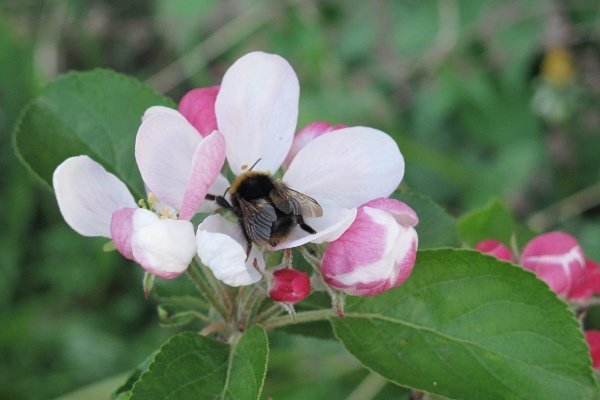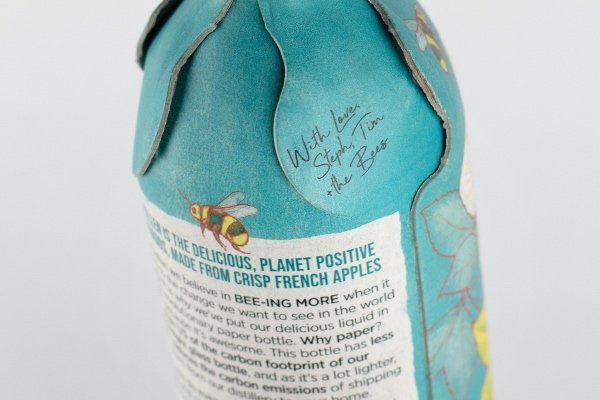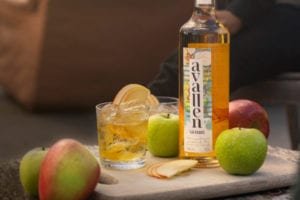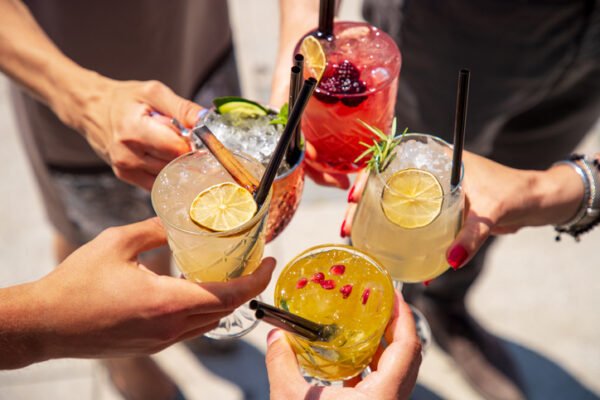TEJ: Consolidate all of this with climate change, rising temperatures and lack of food, and it’s a perfect storm.
The bees that come out at the beginning of the season are the queens – they give birth to that year’s colony. If they come out in March and nothing’s in bloom or the weather is unpredictable, you don’t just lose a queen bee, you lose a whole colony. It’s quite a fragile situation.
What does a cocktail list look like without pollinators?
TEJ: First of all, you’d be limited to grain-based spirits, like whisky. There would be no potatoes for vodka, grapes for brandy…
GP: Or botanicals for gin!
TEJ: And when it comes to mixers the situation is even more bleak. No fruit juices for cocktails, no coffee for espresso martinis. And that’s before you even consider food.
We don’t think about how our food gets on to our plate, but there’s a whole complex process and bees are a crucial part of it.
That’s what’s different about Avallen. We are sustainable by design, starting from the creation of the liquid itself. Our calvados is made from nothing but apples, water and time, and the apples we use are grown in Normandy orchards where artificial irrigation and pesticides are completely banned.
The orchards regenerate year after year, creating thriving biodiversity for bees and other winged insects. It’s a more traditional method but one that completely respects the ecosystem of the orchard.
So what is the answer?
GP: We know from our recent survey that people don’t act to help the bees because they are time strapped, worried about money and scared to commit – so we designed our campaign, Bee the Change, around that.
It’s a bunch of micro-actions that don’t take up time or money, like deadheading flowers more often to give more blooms across the season or leaving ‘weeds’ like dandelions to grow.
The campaign was meant to run for one year – we’re now in year three.
By educating, we’re driving people to be the change and that’s so, so important.
And if more companies could do what Avallen is doing, things would look very different in a short space of time.
 Play Video about This Rock Might Just Save The World
Play Video about This Rock Might Just Save The World Play Video about Play 2 hours of rock
Play Video about Play 2 hours of rock Play Video about Play 2 hours of brook
Play Video about Play 2 hours of brook Play Video about Play 2 hours of sheep
Play Video about Play 2 hours of sheep














































